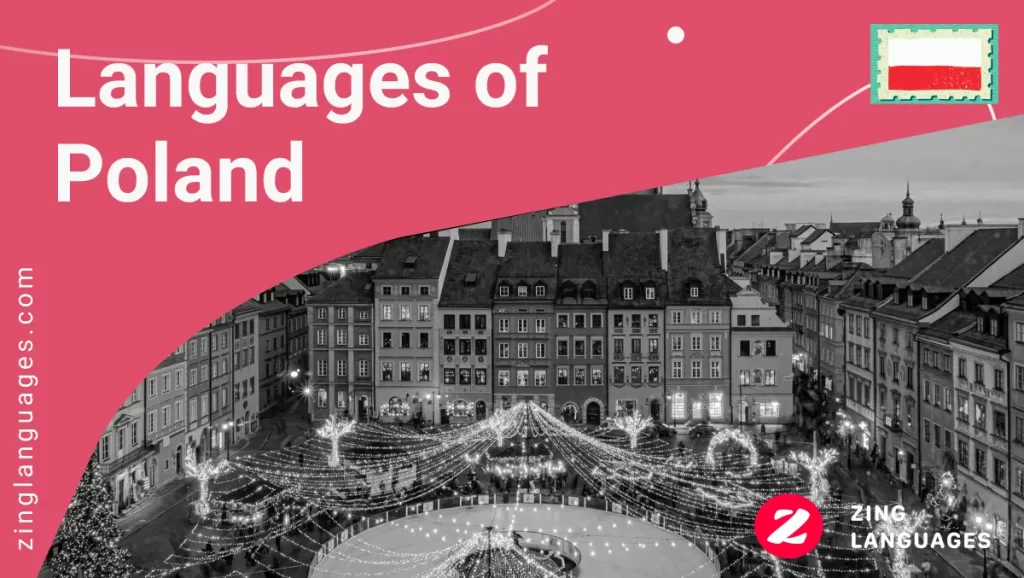Languages Spoken in Poland
Poland, located in East-Central Europe, boasts a rich linguistic heritage despite its high level of linguistic homogeneity. The predominant language spoken in Poland is Polish, but there are several minority languages and foreign languages also in use.
Polish: The Official Language
Polish is the official and predominant language of Poland, spoken by approximately 97% of the population, which translates to over 38 million people. It is a West Slavic language belonging to the Indo-European language family and has been continuously used for literary and governmental purposes since the 1500s.
Historical Development:
Polish began to take shape in the 10th century AD, when the tribes of Vistula and Oder were united under Mieszko I. The language developed further with the adoption of the Latin alphabet and became a common language, or lingua franca, across large regions of Eastern Europe between 1500 and 1700.
Usage:
Polish is the primary language used in all aspects of Polish life, including education, government, media, and daily communication. It is also one of the official languages of the European Union.
Minority Languages
Poland recognizes several minority languages, each with its own unique history and cultural significance.
Kashubian
Kashubian is spoken by approximately 108,140 people, primarily in the northern regions of Kashubia and Pomerania. It is a recognized regional language and belongs to the Lechitic group of Slavic languages. Kashubian has been influenced by Polabian, Old Prussian, and Low German languages.
Silesian
Silesian is spoken by around 529,377 individuals, mainly in the Upper Silesia region. Although it is not officially recognized as a distinct language due to linguistic debates, it is often considered a sub-language of the Lechitic language group and has been influenced by Central German.
Other Minority Languages
Other recognized minority languages include:
- Belarusian: Spoken by 26,448 people.
- German: Spoken by 96,461 people.
- Ukrainian: Spoken by 24,539 people.
- Romany: Spoken by 14,468 people.
- Rusyn (Ruthenian): Spoken by 6,279 people.
- Lithuanian: Spoken by 5,303 people.
- Armenian, Czech, Hebrew, Karaim, Russian, Slovak, and Tatar are also recognized minority languages, though with smaller speaker populations.
Foreign Languages
English
English is widely spoken in Poland, particularly among the younger population. Approximately 32% of Polish citizens have some knowledge of English, and it is often taught as the first foreign language in schools.
German
German is spoken by around 96,461 people, with nearly 90% of Germans living in Poland being fluent in German. It is commonly used in urban centers like Łódź and Wrocław.
Russian
Russian is spoken by about 19,805 people, primarily due to historical and cultural ties between Poland and Russia.
Table: Key Languages Spoken in Poland
| Language | Number of Speakers | Description |
|---|---|---|
| Polish | 37,815,606 | Official language, spoken by 97% of the population. |
| Silesian | 529,377 | Spoken mainly in Upper Silesia, not officially recognized as a distinct language. |
| Kashubian | 108,140 | Recognized regional language, spoken in northern regions. |
| English | 103,541 | Widely spoken, particularly among the younger population. |
| German | 96,461 | Spoken by Germans living in Poland, especially in urban centers. |
| Belarusian | 26,448 | Recognized minority language. |
| Ukrainian | 24,539 | Recognized minority language. |
| Romany | 14,468 | Spoken by the Romani people. |
| Rusyn | 6,279 | Recognized minority language, closely related to Ukrainian and Russian. |
| Lithuanian | 5,303 | Recognized minority language. |
FAQ Section
1. What is the official language of Poland?
- The official language of Poland is Polish, spoken by approximately 97% of the population.
2. What are the recognized minority languages in Poland?
- Recognized minority languages include Kashubian, German, Belarusian, Ukrainian, Romany, Rusyn, Lithuanian, Armenian, Czech, Hebrew, Karaim, Russian, Slovak, and Tatar.
3. How many people speak Silesian in Poland?
- Approximately 529,377 people speak Silesian, mainly in the Upper Silesia region.
4. What is the status of English in Poland?
- English is widely spoken, particularly among the younger population, with around 32% of Polish citizens having some knowledge of English.
5. Which foreign languages are commonly spoken in Poland?
- English, German, and Russian are the most common foreign languages spoken in Poland.
6. What is the historical significance of Polish?
- Polish has been continuously used for literary and governmental purposes since at least the 1500s and was a common language across large regions of Eastern Europe between 1500 and 1700.
7. How does the Polish language influence other languages spoken in Poland?
- Polish has influenced several minority languages, including Silesian and Kashubian, due to historical and cultural interactions.
Wikipedia Link
For more detailed information on the Polish language and its historical context, you can refer to the Wikipedia page on the Polish language:
This page provides comprehensive details on the language’s history, development, and usage, as well as its linguistic characteristics and official status.



